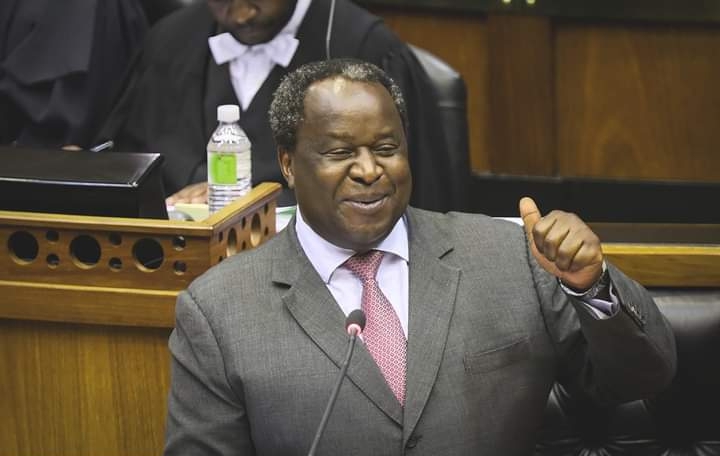South Africa is grieving the loss of Tito Mboweni, former finance minister, labor leader, and the nation’s first Black central bank governor, who passed away at age 65 after a brief illness. The Presidency confirmed his death late on Saturday, marking the end of a life that played a pivotal role in South Africa’s democratic and economic transformation.
Mboweni’s journey from anti-apartheid activist to one of the country’s most influential political figures is a testament to his enduring commitment to justice and economic reform. As a student activist, he was deeply involved in the struggle against apartheid, a fight that would shape his career and the future of South Africa.
In 1994, Mboweni became the country’s first labor minister in Nelson Mandela’s post-apartheid government, serving until 1999. During this crucial period, he laid the groundwork for the labor laws that continue to protect worker rights today. His reforms introduced a system of collective bargaining and labor courts, ensuring that the voices of South Africa’s workers were heard and their rights upheld. These contributions helped foster a more just labor system in a nation still healing from the wounds of apartheid.
Following his tenure as labor minister, Mboweni was appointed governor of the South African Reserve Bank in 1999, becoming the first Black individual to hold the position. Over the next decade, he would be instrumental in stabilizing South Africa’s economy through the introduction of inflation targeting, a policy that helped maintain price stability. His leadership at the Reserve Bank established him as one of the foremost voices in African economic policy, respected both at home and internationally.
Mboweni’s influence extended far beyond the borders of South Africa. His work in shaping post-apartheid economic policies earned him a global reputation as a reformer and a forward-thinking economic strategist. His tenure as finance minister, from 2018 to 2021 under President Cyril Ramaphosa, came at a time when South Africa was grappling with deep economic challenges, including rising debt and unemployment. He was known for his candidness, often engaging directly with South Africans on social media and sparking national conversations about fiscal policy.
President Ramaphosa, a long-time ally of Mboweni, expressed his shock and sadness at his passing, calling him a “leader and compatriot” who had served the nation tirelessly. “We have lost an activist, an economic policy innovator, and a champion of labor rights. His vitality, energetic spirit, and affable engagement with fellow South Africans made his death all the more shocking,” Ramaphosa said in a statement.
The African National Congress (ANC), the party Mboweni served for decades, lauded his contributions to South Africa’s democratic and economic foundation. “His role in shaping our democratic future, particularly during the final years of apartheid, cannot be overstated,” the ANC said, praising him as a trusted voice in economic debates that helped define South Africa’s transition to democracy.
Mboweni’s passing leaves a profound void in the political and economic landscape of South Africa, but his legacy as a reformer, economist, and champion of labor rights will endure for generations to come.




